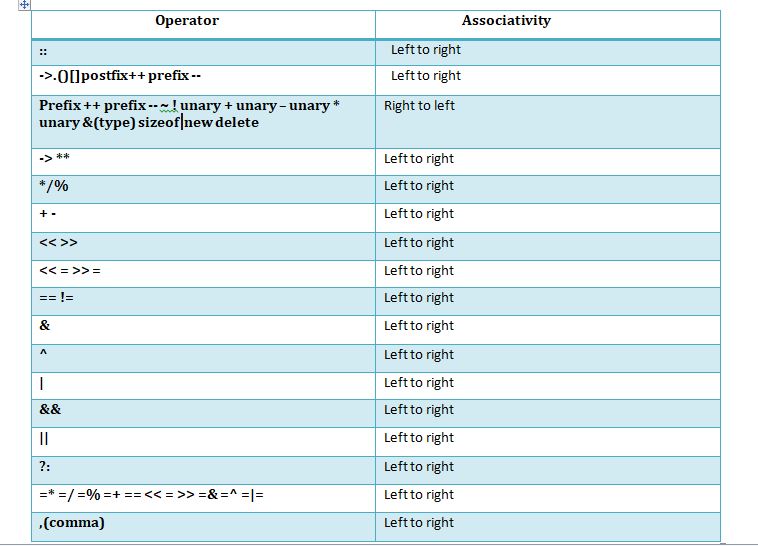C++ Operator Precedence
Although C++ enables us to add multiple meaning to the operators, yet their association and precedence remain the same take example , the multiplication operator will continue having higher precedence than the add operator.
in the below table gives the precedence and associativity of all the c++ operators. the groups are listed in the decreasing precedence order. The labels prefix and postfix distinguish the uses of ++ and — also the symbols +,-,*, & are used as both unary and binary operators
Operator precedence and associativity

When parsing an expression, an operator which is listed on some row will be bound tighter (as if by parentheses) to its arguments than any operator that is listed on a row further below it.
Operators that are in the same cell (there may be several rows of operators listed in a cell) have the same precedence and are grouped in the given direction. For example, the expression a=b=c is parsed as a=(b=c), and not as (a=b)=c because of right-to-left associativity.